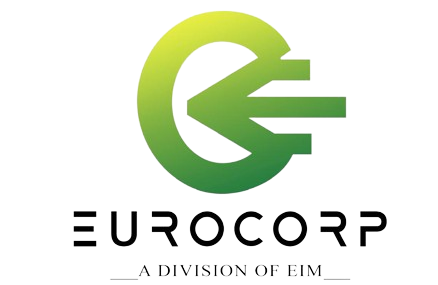
Corporate Training For Business | Professionals | College Students
Eurocorp is the specialised corporate training division of EIM that offers industry-centric training programmes and recruitment services to help individuals and organisations enhance their skills and achieve their full potential. With a team of experienced trainers and subject matter experts, Eurocorp designs and delivers engaging and effective training programmes that meet the unique needs of each client. Eurocorp’s key strength lies in understanding that each business has its own skill development needs, which are vital to organisational growth.
Our trainers are internationally certified, have exhaustive knowledge of subjects, and are friendly. They are committed to providing clients with high-quality training solutions that are relevant, practical, and result-oriented. Eurocorp focuses on improving business performance through training by building competencies that connect individual roles with organisational goals. They believe that learning is a journey and strive to make learning a part of learners’ lives instead of pushing them to learn. Their partnership with organisations goes beyond training to collaborating and achieving desired results.
Eurocorp designs customised solutions that result in holistic organisational growth. They are passionate about driving learning with a strong focus on results. With their experience and industry knowledge, they help organisations achieve their desired objectives. Training and development are crucial to keeping up with industry trends and best practices in today’s ever-evolving business environment. Eurocorp understands this importance and is passionate about helping organisations enable learning at the workplace and achieve desired objectives. Their customised solutions and comprehensive approach ensure that clients are well-equipped to face any challenges that come their way.
In the present era, we witness a monumentḥal shift towards digitization and innovative technologies such as the Internet of Things (IoT), artificial intelligence (AI), and machine learning (ML), which have infiltrated nearly every facet of human existence.
With the dynamic macroeconomic conditions that swiftly change the corporate landscape, it is hardly surprising that companies are actively reassessing their current training systems. They are proactively investing in more efficient training techniques and corporate trainers to drive workforce development.
The unprecedented availability of learning material, combined with the implementation of effective and efficient delivery methods, is bringing about a paradigm shift in learning. The ever-evolving workforce, which thrives on digital learning, clearly indicates that corporate training is undergoing a transformative phase at an accelerated pace.
Our vision is to become a leading provider of innovative and effective training solutions that help individuals and organisations achieve their full potential.
To provide bespoke training to learners tailored to meet everyone’s needs while creating a learning environment that provides innovative and exciting learning experiences for the future corporate professionals of this country and beyond.
Corporate training is an indispensable facet of human resource management that endeavours to equip the personnel of an organisation with the requisite acumen and expertise to attain excellence. Concomitantly, the advancement of employees culminates in the triumphant triumph of the enterprise.
The realm of corporate training has been greatly aided by technology, which has significantly improved the acceptance and pace of business transformation in our rapidly changing business climate. While the fundamental principles and learning objectives of corporate training have undergone noticeable transformations, the method of delivering training content has undergone tremendous advancements and is continuing to evolve at a steady pace.
Research conducted by McKinsey has exposed the harsh reality that nearly two-thirds of business transformation mandates fall short of their set objectives due to a lack of skilled personnel. This inevitably necessitates the reorganisation of the workforce.
In recent times, training and development have evolved into a distinct business function with more refined and formal methodologies and theories. It is now perceived as a long-term strategic responsibility rather than a mere cost centre for organisations. Most companies have adopted the concept of “continual learning” and are investing considerable resources to facilitate both professional and personal employee growth while cultivating a highly skilled workforce.
Learning and development professionals now enjoy greater influence and increased budgets, enabling them to shift their focus from addressing daily challenges to bridging skill gaps in order to stay competitive.
The evolution of businesses, rapid technological advancements, and a dynamic workforce have led to a shift from conventional corporate training methods to blended learning models for enhanced efficacy. The prevailing workforce primarily consists of millennials, who are expected to lead organisations in the future. Furthermore, advancements in technology have transformed the characteristics of the average learner.
The changing nature of learning has expanded its scope significantly, encompassing a broad range of skills and knowledge areas. Additionally, the digital era has shortened the lifespan of skills, necessitating the adoption of novel training techniques to keep pace with industry demands.
High-quality business outcomes and services depend on how well the employees are trained and developed to handle the ever-increasing competition in the market. Thus, corporate training will always remain a significant function of any organisation, though its role is going to be very different from what it was in the past.
As we are slowly shifting towards a knowledge economy, intellectual capital is becoming the main generator of revenue for both the organisation and its employees and is playing a key role in retaining employees. A well-designed training programme by Eurocorp with a clearly designed career path can increase job satisfaction among young professionals multifold and can also help them become effective and efficient at the workplace.
